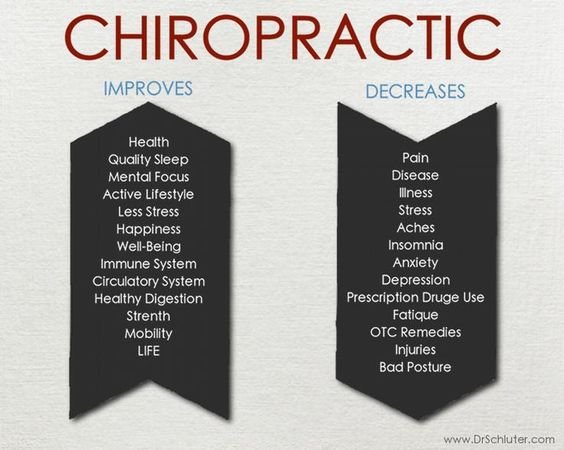Discover The Unique Benefits Of Acupuncture As We Explore Its Performance In Comparison To Standard Discomfort Administration Techniques You May Know With. What Insights Might You Acquire?
Discover The Unique Benefits Of Acupuncture As We Explore Its Performance In Comparison To Standard Discomfort Administration Techniques You May Know With. What Insights Might You Acquire?
Blog Article
Writer-Kaufman Valentine
When you consider discomfort monitoring choices, you could find yourself evaluating the pros and cons of numerous methods, including acupuncture, over the counter medications, and physical treatment. While lots of approaches provide relief, they frequently feature their very own collection of challenges, like negative effects or lengthy therapy times. Acupuncture stands apart for its special ability to advertise self-regulation with fewer threats. However exactly how does its effectiveness compare to more standard techniques? The subtleties of these methods can substantially affect your options, and exploring them even more might cause unusual understandings.
Review of Pain Monitoring Techniques
When it comes to taking care of discomfort, you have a variety of methods available. These approaches can range from standard techniques to extra alternative treatments. Understanding your alternatives is essential in discovering what works finest for you.
One typical method is non-prescription medications like ibuprofen or acetaminophen, which can offer quick alleviation for mild to modest discomfort. Prescription medications, consisting of opioids, may be needed for a lot more severe discomfort, though they come with risks of dependence and adverse effects.
Physical treatment is another effective technique, concentrating on workouts and stretches to strengthen muscle mass and improve wheelchair. This method usually assists in managing chronic pain problems.
In addition, some people turn to even more alternative options, such as massage therapy, which can relieve tension and improve circulation.
Mind-body strategies, like mindfulness meditation or yoga, help you manage pain by minimizing anxiety and boosting your psychological strength.
Finally, way of life modifications, such as preserving a healthy and balanced diet plan and normal exercise, can play a vital function in total discomfort monitoring. Each technique has its pros and cons, so it's essential to explore what suits your demands and preferences best.
Perks of Acupuncture
Acupuncture supplies a special approach to discomfort management that stands apart among various strategies. By targeting specific factors on your body, it promotes the circulation of power, or "qi," promoting all-natural recovery and minimizing pain.
Among the biggest advantages is its very little side effects. Unlike some drugs, which can bring about dependency or unwanted health and wellness issues, acupuncture is an alternative therapy that motivates your body's self-regulation.
You'll likely find that acupuncture sessions can aid alleviate chronic pain, migraines, and also stress. Many individuals experience a sense of relaxation and health throughout and after therapy, which can enhance general lifestyle.
And also, it's a versatile option; it can be made use of alongside various other therapies, making it a terrific complement to your existing pain monitoring plan.
One more substantial benefit is that acupuncture can be tailored to your details requirements. Your specialist will examine your condition and establish a personalized treatment plan, guaranteeing you obtain the care that finest sustains your recovery.
With its ancient origins and growing acceptance in contemporary medication, acupuncture sticks out as an engaging choice for pain alleviation.
Comparing Performance and Results
Pain administration strategies differ commonly in their effectiveness and results, making it essential to recognize exactly how they stack up against one another. When thinking about alternatives like acupuncture, physical therapy, and medicine, you'll find distinct differences in how each approach addresses discomfort.
https://knoxwmdtj.blogunok.com/33409924/embark-on-your-course-to-situating-the-best-chiropractic-specialist-by-uncovering-vital-recommendations-for-choosing-the-very-best-specialist , for instance, usually offers relief for persistent discomfort conditions, with researches revealing substantial enhancements hurting levels for lots of patients.
On the other hand, drugs like opioids can effectively handle sharp pain but bring dangers of dependence and adverse effects.
https://pontevedrarecorder.com/stories/new-wellness-center-brings-chiropractic-care-to-nocatee-community,11352 focuses on rehabilitation and may take longer to reveal results, which can be irritating if you need prompt alleviation.
When evaluating these techniques, consider your details discomfort kind and your personal health goals. Some people find that a combination of methods functions best for them.
For example, you might benefit from acupuncture sessions together with physical treatment to maximize recuperation.
Eventually, recognizing the performance and outcomes of each technique will assist you make educated choices concerning your discomfort monitoring strategy, allowing you to pick the strategy that finest fits your needs and way of living.
Final thought
In recap, acupuncture sticks out as an important alternative to traditional pain management approaches. It supplies quick relief and fosters self-regulation without the dangers of reliance associated with medications. While physical therapy might demand even more time for outcomes, acupuncture can offer prompt benefits, making it an attractive option for those seeking relief from persistent discomfort and tension. By including acupuncture into your discomfort administration plan, you can enhance your overall well-being and recover control over your health.
